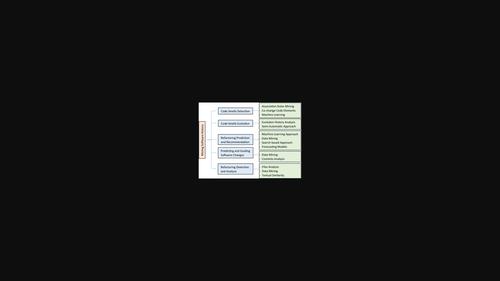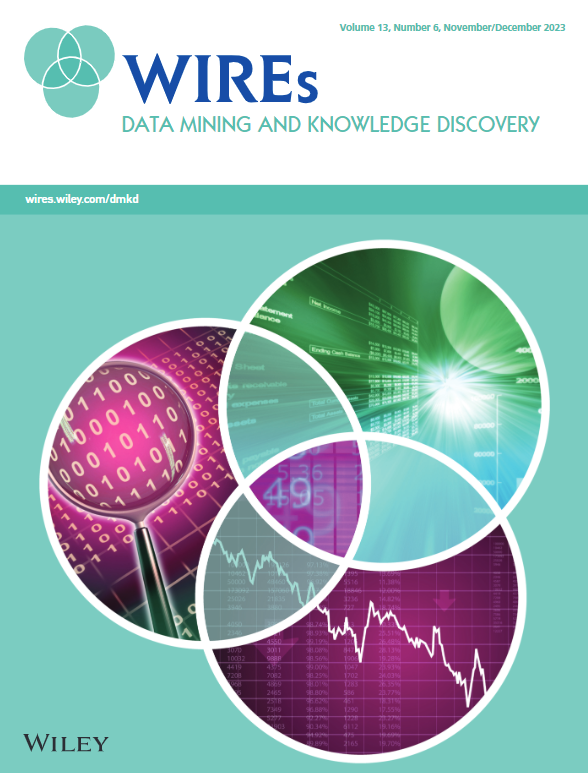挖掘软件存储库以促进重构的研究
IF 11.7
2区 计算机科学
Q1 COMPUTER SCIENCE, ARTIFICIAL INTELLIGENCE
Wiley Interdisciplinary Reviews-Data Mining and Knowledge Discovery
Pub Date : 2023-05-22
DOI:10.1002/widm.1508
引用次数: 0
摘要
软件重构着重于通过对内部结构进行更改而不改变可观察到的行为来提高软件质量。确定应该应用哪些重构,并将最相关和最优的重构呈现给开发人员,通常是具有挑战性的。现有文献表明,识别和推荐所需重构的潜在来源之一是过去的软件开发和演化历史,这些历史通常存档在软件存储库中。在本文中,我们回顾了一些现有文献,这些文献试图提出通过利用从软件存储库中挖掘的信息来促进重构的方法。根据已审阅的论文,现有的工作利用软件历史挖掘来支持代码气味分析、重构和指导软件更改。首先,过去的历史信息用于检测源代码中的设计缺陷,通常称为代码气味。此外,其他研究分析了代码气味的演变,以确定它们如何以及何时被引入代码库并得到解决。其次,软件存储库挖掘提供了有用的见解,可用于预测重构需求以及需要哪些特定的重构操作。此外,过去的历史可以用于检测和分析以前应用的重构,以建立软件变更事实,例如,开发人员如何重构代码及其背后的动机。最后,更改模式用于预测可能需要的进一步更改,并在给定的修改任务期间为更改推荐一组文件。论文进一步提出了未来在这一研究方向上可以追求的其他令人兴奋的可能性。本文章由计算机程序翻译,如有差异,请以英文原文为准。

Research on mining software repositories to facilitate refactoring
Software refactoring focuses on improving software quality by applying changes to the internal structure that do not alter the observable behavior. Determining which refactorings should be applied and presented to developers the most relevant and optimal refactorings is often challenging. Existing literature suggests that one of the potential sources to identify and recommend required refactorings is the past software development and evolution histories which are often archived in software repositories. In this article, we review a selection of existing literature that has attempted to propose approaches that facilitate refactoring by exploiting information mined from software repositories. Based on the reviewed papers, existing works leverage software history mining to support analysis of code smells, refactoring, and guiding software changes. First, past history information is used to detect design flaws in source code commonly referred to as code smells. Moreover, other studies analyze the evolution of code smells to establish how and when they are introduced into the code base and get resolved. Second, software repositories mining provides useful insights that can be used in predicting the need for refactoring and what specific refactoring operations are required. In addition, past history can be used in detecting and analyzing previously applied refactorings to establish software change facts, for instance, how developers refactor code and the motivation behind it. Finally, change patterns are used to predict further changes that might be required and recommend a set of files for change during a given modification task. The paper further suggests other exciting possibilities that can be pursued in the future in this research direction.
求助全文
通过发布文献求助,成功后即可免费获取论文全文。
去求助
来源期刊

Wiley Interdisciplinary Reviews-Data Mining and Knowledge Discovery
COMPUTER SCIENCE, ARTIFICIAL INTELLIGENCE-COMPUTER SCIENCE, THEORY & METHODS
CiteScore
22.70
自引率
2.60%
发文量
39
审稿时长
>12 weeks
期刊介绍:
The goals of Wiley Interdisciplinary Reviews-Data Mining and Knowledge Discovery (WIREs DMKD) are multifaceted. Firstly, the journal aims to provide a comprehensive overview of the current state of data mining and knowledge discovery by featuring ongoing reviews authored by leading researchers. Secondly, it seeks to highlight the interdisciplinary nature of the field by presenting articles from diverse perspectives, covering various application areas such as technology, business, healthcare, education, government, society, and culture. Thirdly, WIREs DMKD endeavors to keep pace with the rapid advancements in data mining and knowledge discovery through regular content updates. Lastly, the journal strives to promote active engagement in the field by presenting its accomplishments and challenges in an accessible manner to a broad audience. The content of WIREs DMKD is intended to benefit upper-level undergraduate and postgraduate students, teaching and research professors in academic programs, as well as scientists and research managers in industry.
 求助内容:
求助内容: 应助结果提醒方式:
应助结果提醒方式:


